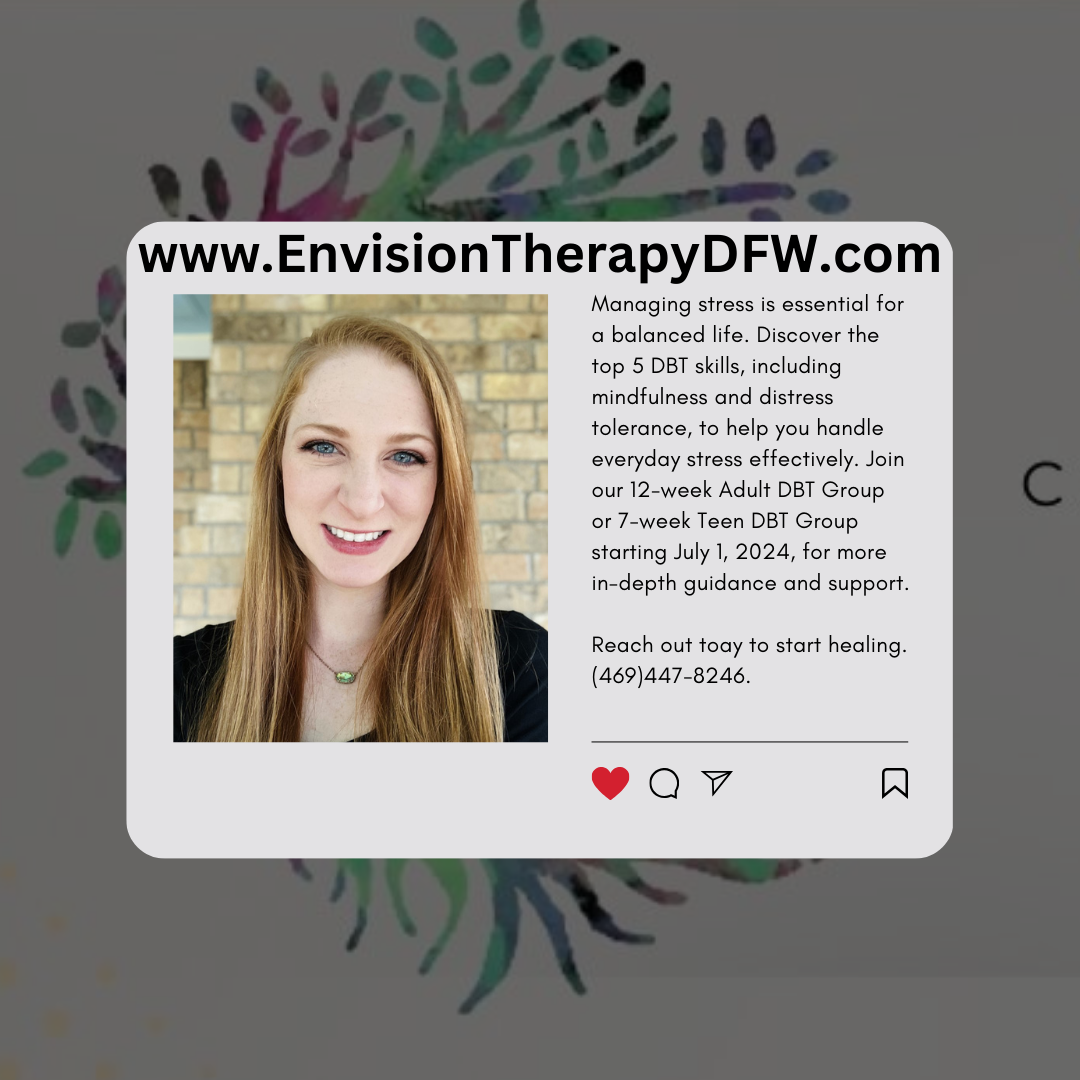Friendships are a vital part of our lives and our teens life, providing support, joy, and a sense of belonging. However, maintaining healthy friendships can be challenging, especially when communication and conflict resolution issues arise. Dialectical Behavior Therapy (DBT) offers a set of skills that can significantly enhance your teen’s ability to build and maintain strong, healthy friendships.
Key DBT Skills for Building Better Friendships
Mindfulness
Mindfulness is about being present in the moment and fully engaging with your surroundings and interactions without judgment. Practicing mindfulness in friendships helps you be more attentive and responsive, enhancing your connections.
How Mindfulness Can Help
- Improving Listening Skills: By being fully present in conversations, you can listen more effectively and understand your friends better.
- Reducing Reactivity: Mindfulness helps you pause before reacting, which can prevent misunderstandings and conflicts.
Example Exercise
During a conversation with a friend, focus entirely on what they are saying. Notice their words, tone, and body language without planning your response while they are speaking. This deep attention shows your friend that you value and respect them.
Distress Tolerance
Distress Tolerance skills are designed to help you manage emotional pain and stress without making the situation worse. These skills are crucial when dealing with conflicts or disagreements in friendships.
How Distress Tolerance Can Help
- Handling Disagreements: Techniques like deep breathing and progressive muscle relaxation can help you stay calm during arguments.
- Preventing Escalation: Distress tolerance skills help you avoid impulsive reactions that could harm your friendship.
Example Technique
When you feel a disagreement escalating, practice Paced Breathing (also called Navy Seal Breathing or Box Breathing). Inhale slowly for a count of four, hold for four, and exhale for four. Repeat this cycle until you feel more centered and ready to continue the conversation calmly.
Emotion Regulation
Emotion Regulation skills help you understand and manage your emotions, which is essential for maintaining healthy relationships.
How Emotion Regulation Can Help
- Identifying Emotions: Recognizing your emotions allows you to communicate them more clearly to your friends.
- Modulating Responses: Techniques like opposite action can help you respond to emotions in a way that supports rather than harms your relationships.
Example Scenario
If you feel jealous because your friend is spending more time with someone else, instead of acting out or withdrawing, practice Opposite Action. Engage with your friend positively and express your feelings constructively, such as, “I’ve been missing our time together. Can we plan something soon?”
Interpersonal Effectiveness
Interpersonal Effectiveness skills are about communicating your needs and maintaining relationships effectively. These skills are essential for expressing yourself clearly and resolving conflicts.
How Interpersonal Effectiveness Can Help
- Assertive Communication: Helps you express your thoughts and feelings directly and respectfully.
- Conflict Resolution: Provides tools for resolving disagreements constructively.
Example Exercise
Use the DEAR MAN technique to ask a friend for something you need:
- Describe: “I’ve noticed we haven’t spent much time together lately.”
- Express: “I feel a bit left out.”
- Assert: “I’d love to hang out more often.”
- Reinforce: “It would make me really happy, and I think we both enjoy our time together.”
- Mindful: Stay focused on your request.
- Appear Confident: Maintain eye contact and a calm demeanor.
- Negotiate: “What do you think? Can we find a time that works for both of us?”
DBT offers powerful tools to enhance communication and conflict resolution skills, leading to healthier and more fulfilling friendships. By incorporating mindfulness, distress tolerance, emotion regulation, and interpersonal effectiveness into your interactions, you can build stronger, more resilient relationships.
Encourage your teen to join our new DBT group that just started July 1st. We have two spots left and 5 days left to join! Together, we can help them develop the skills they need to build and maintain healthy friendships. Call 469.447.8246 or fill the form out below to enroll today!
Help your teen build stronger, healthier friendships with DBT. Our new group that started July 1st will teach essential skills like mindfulness, distress tolerance, emotion regulation, and effective communication. Call 469.447.8246 or visit envisiontherapydfw.com to enroll today!
TLDR: Learn how DBT skills can help teens build better friendships by enhancing communication and conflict resolution abilities.
DBT, friendships, teens, mindfulness, distress tolerance, emotion regulation, interpersonal effectiveness, communication skills, conflict resolution, mental health

